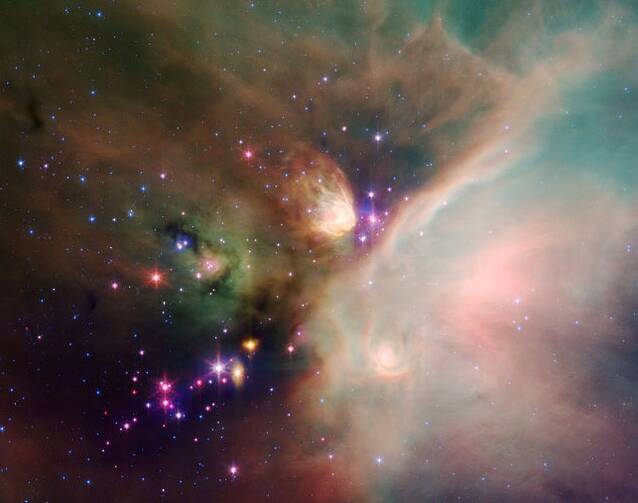As a child of the 70s and a life-long science nerd, I’m old enough to remember watching Carl Sagan’s “Cosmos: A Personal Voyage” when it first aired in 1980. Released while the Cold War was still raging, Carl Sagan’s “Cosmos” brought us a world of wonder and beauty beyond our own. Against the competing ideologies of Communism and capitalism, Carl Sagan stressed the fundamental unity of humanity and our place on a “pale blue dot” among the “billions and billions of stars” in the universe.
Now, Fox and National Geographic have collaborated to air an updated version of Carl Sagan’s original series starring Neil deGrasse Tyson, which they are calling Cosmos: A Spacetime Odyssey. Having just re-watched the first episode of Sagan’s original series and then the first episode of Tyson’s remake, though, I can’t help but come away feeling that we’ve lost something in the translation.
As a remake, much of the narration is derived from the original series. As a result, the difference between the two versions is best seen, not in what they say, but in how they say it and in the editorial decisions Tyson and his team have made. The most telling change, and the one that has received the most attention, concerns how each “Cosmos” treats the history of pre-modern astronomy.
Where Carl Sagan’s “Cosmos” began with the ancient Greeks, whose wonder at the marvels of the heavens led them to ask questions about the world around them, Neil deGrasse Tyson begins his history with a long animated sequence on Giordano Bruno, who was burned at the stake for heresy in 1600 AD. Many others have already pointed out the historical fallacies in Tyson’s portrayal of Bruno as a modern freethinker martyred by the oppressive forces of Christianity, and these misrepresentations are indeed significant. But I think this loses the forest for the trees.
To my mind, the real issue is that where Sagan wanted “Cosmos” to introduce everyone to our marvelous universe, Tyson’s remake is a triumphalist exaltation of the power of science, and this is the true poverty of the new “Cosmos.” In Tyson’s “Cosmos,” true discovery begins with the Renaissance and the last 400 years of history are seen through the lens of an immense struggle between progressive Science and the oppressive forces of Religion. In this “new-atheist” vision, we now know so much about our universe that we have no need for God and should instead allow Science to take its rightful place as the true path to knowledge and human security.
What we lose with Tyson’s vision, though, is the ability to appreciate the world around us simply because it is beautiful. When I talk about astronomy in public, people aren’t particularly interested in the details of stellar pulsations on the horizontal branch. What the public wants to see are the beautiful pictures, and this movement towards beauty is what the new “Cosmos” lacks. Theirs is a cold scientific world, where we can revel in our knowledge, but our hearts will no longer sing,
and the firmament proclaims his handiwork.
Day to day pours forth speech,
and night to night declares knowledge.
There is no speech, nor are there words;
their voice is not heard;
yet their voice goes out through all the earth,
and their words to the end of the world"
Brother Jonathan Stott, S.J., a former astronomer at the Vatican Observatory, is a professor of physics at Fairfield University.








